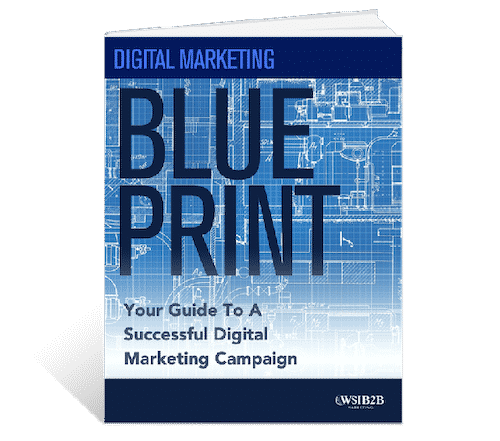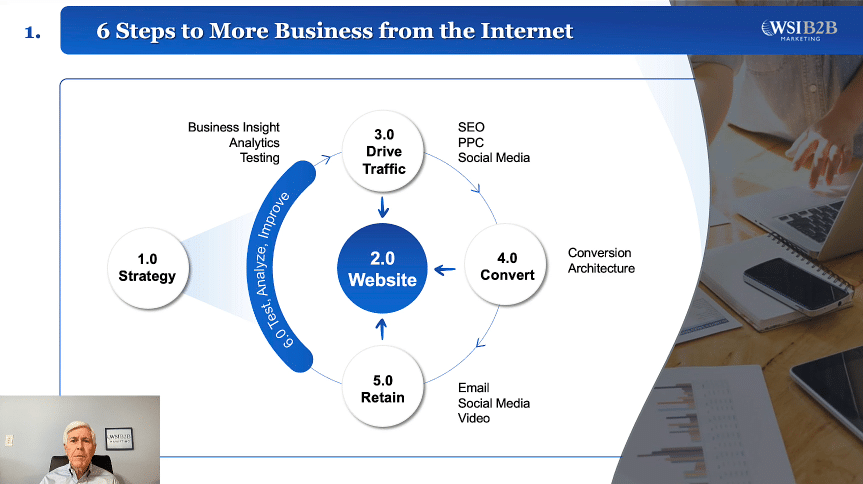Executing a Solid B2B SEO Campaign
September 2, 2021
What does a solid B2B SEO Campaign look like?
What resources do you need to execute the campaign?
These are the questions that baffle inexperienced B2B SEO Campaign planners. Oftentimes answers to these questions can be hard to find, but not if you have a well defined plan to reach your desired goals. Let’s take a look at what should be considered and what should be ignored in the planning and execution phase.
Phase I: Define Goals with Timelines of Measurement
Executing a strategy without clearly defined goals is the first step in the wrong direction. SEO goals can range from rankings on particular keywords, creating awareness about a product or service, or could be as simple as a certain number of downloads of a resource on your website. Picking a goal to chase should be clearly defined and discussed and finalized with the marketing department. B2B business marketing representatives should lay out their expectations clearly to their SEO counterparts. If your business needs leads for a particular product or service, your B2B SEO Campaign Manager should look to outpace the competition in that particular niche. Close attention should be paid to monthly fluctuations and trends and alterations made as necessary.
Whatever goals a B2B business might have, explaining them to your SEO department can greatly help them decide the correct strategy to approach, keeping timelines of measurements in the picture. A timely assessment of strategies should be scheduled to forecast results and to see if these expectations are met. The starting point should be recorded as a baseline, be it a ranking report, referral traffic reports, traffic to the site, etc. Similar reports should be generated at regular intervals; this shows whether the campaign is on track or whether something needs to be improved.
Successful Marketing Starts with a Plan
You wouldn’t build a house without a blueprint, why would you start your marketing without one?
Phase II: Planning and Resource Gathering
Once the B2B business team and the B2B SEO Campaign Manager have an agreement on the goal and timeline of the campaign, then comes the strategic planning and resource building, or gathering phase. Based on the strategy, you may need several resources like infographics, blogs, videos, ebooks, brochures, case studies, demos, images, information guides, live streaming events, microsites, presentations, press releases, product data sheets, reference guides, surveys, whitepapers, etc. Content marketing and content sponsoring on leading industry sites helps create traffic, spread news, position you as a resource within the industry, and collect feedback. The B2B business team should share resources developed in-house for marketing, with a B2B SEO Campaign Manager. Oftentimes these content pieces can be a great online resource.
Phase III: Execution and Assessment
Once the strategy is decided and the resources needed are collected, then it becomes a lot easier. Big campaigns should be divided into smaller sub-tasks, and these sub-tasks should be prioritized according to the impact they will have on the overall campaign. Some efforts take time to be recognized by search engines, these should be executed prior to efforts that produce results quickly. Results should be forecasted and matched with the actual data received. Measurement parameters for each effort may be different but these efforts should result in the achievement of the overall goal. E.g., some efforts are to improve rankings of a particular page; therefore traffic and CTR to this page should increase gradually. Similarly, if a new section or a microsite was created, organic traffic should increase with each step of the promotion. The same would be with the case of downloadable assets. Each step of the promotion should show an increase in the number of downloads.
Sometimes things will not go according to plan. A good B2B SEO Campaign Manager should be able to improvise with each assessment. Some strategies may pay off more than expected and some may perform poorly. In such cases, resources and efforts should be re-prioritized. Assessments at regular intervals should be translated and shared with the SEO team and marketing department.
Conclusion:
If you ask me which phase is the most important in the overall campaign execution, the SEO nerd in me will shout out phase II for sure; but being in the shoes of the B2B SEO campaign manager, I can’t deny the fact that Phase I is actually the most important. Without clear communications between the marketing team and the B2B SEO campaign management team, goals will never be clearly defined and will never match your marketing expectation no matter how hard the B2B SEO Campaign Manager tries.
Therefore a solid B2B SEO campaign is one that has clearly defined goals based on a collaboration between the marketing and SEO departments, that are regularly monitored and altered as necessary.






